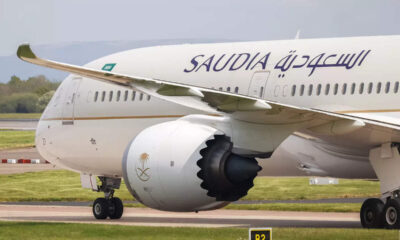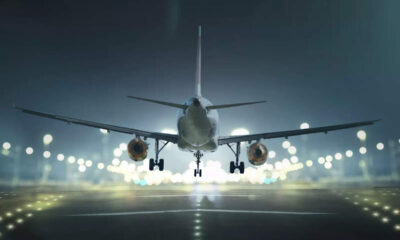Destination
Higher costs and low base fares send Delta’s profit down 29%. The airline still earned $1.31 billion, BA

Higher costs and low base fares sent Delta’s second-quarter profit down 29 per cent, but the airline still earned USD 1.31 billion
HOLD! DO NOT PUBLISH UNTIL DELTA’S PRESS RELEASE GOES OUT AT AROUND 6:30 A.M. EASTERN ON THURSDAY, JULY 11!!!
Americans are traveling in record numbers this summer, but Delta Air Lines saw second-quarter profit drop 29 per cent due to higher costs and discounting of base-level fares across the industry.
The airline is also predicting a lower profit than Wall Street expects for the third quarter.
Delta said Thursday it earned USD 1.31 billion from April through June, down from USD 1.83 billion a year earlier.
Revenue rose 7 per cent to nearly USD 16.66 billion – a company record for the quarter. That is not surprising to anyone who has been in an airport recently. The Transportation Security Administration screened more than 3 million travelers Sunday, a single-day high.
“Demand has been really strong,” CEO Ed Bastian said in an interview. “International, business (travel), our premium sector all outperformed.”
Delta’s results showed a continuing divide between passengers who sit in the front of the plane and those in economy class. Revenue from premium passengers jumped 10 per cent – about USD 500 million – but sales in the main cabin were flat with a year earlier.
Wealthier Americans are benefitting from strong gains in stock prices and the value of their homes, according to economists, while middle-class families are more likely to be holding back on spending because high inflation over the last three years has eroded their paychecks. Delta, United, and other airlines have stepped up their targeting of premium passengers with better seats, food, airport lounges, and other amenities.
“Our more affluent customers are contributing meaningfully to our growth, and that’s why we continue to bring more and more product to them,” Bastian said.
But Bastian disputed any notion that middle-class travelers are pulling back on spending. He said it is simply supply and demand – the airline industry, including low-fare carriers, is adding flights even faster than demand is growing, leading to lower fares. “The discounting is in the lower-fare bucket,” he said.
Delta plans to add flights at a slower rate for the rest of the year, and Bastian said he believes other airlines will too, which could give the carriers more pricing power. Delta doesn’t disclose average fares, but passengers paid 2 per cent less per mile in the second quarter, and there were a couple more empty seats on the average flight, compared with a year earlier.
Delta’s increase in revenue was more than offset by higher costs. Expenses jumped 10 per cent, with labor, jet fuel, airport fees, airplane maintenance, and even the cost of running its oil refinery all rising sharply.
Spending on labor grew 9 per cent over last year. The airline hired thousands of new workers when travel began recovering from the coronavirus pandemic, but hiring now is mostly limited to replacing workers who leave or retire. Delta laid off an undisclosed number of nonunion office employees last fall in a sign that management considered the company overstaffed.
Atlanta-based Delta said its earnings, excluding one-time items, worked out to USD 2.36 per share, a penny less than the average forecast among analysts in a FactSet survey.
The airline said its adjusted profit in the third quarter will be between USD 1.70 and USD 2 per share, below analysts’ forecast of USD 2.04 per share. Delta repeated its previous prediction that full-year profit will be USD 6 to USD 7 per share.
-

 Destination8 months ago
Destination8 months agoSingapore Airlines CEO set to join board of Air India, BA News, BA
-

 Breaking News10 months ago
Breaking News10 months agoCroatia to reintroduce compulsory military draft as regional tensions soar
-

 Gadgets3 months ago
Gadgets3 months agoSupernatural Season 16 Revival News, Cast, Plot and Release Date
-

 Tech News12 months ago
Tech News12 months agoBangladeshi police agents accused of selling citizens’ personal information on Telegram
-

 Productivity11 months ago
Productivity11 months agoHow Your Contact Center Can Become A Customer Engagement Center
-

 Gadgets3 weeks ago
Gadgets3 weeks agoFallout Season 2 Potential Release Date, Cast, Plot and News
-

 Breaking News10 months ago
Breaking News10 months agoBangladesh crisis: Refaat Ahmed sworn in as Bangladesh’s new chief justice
-

 Toys12 months ago
Toys12 months ago15 of the Best Trike & Tricycles Mums Recommend























